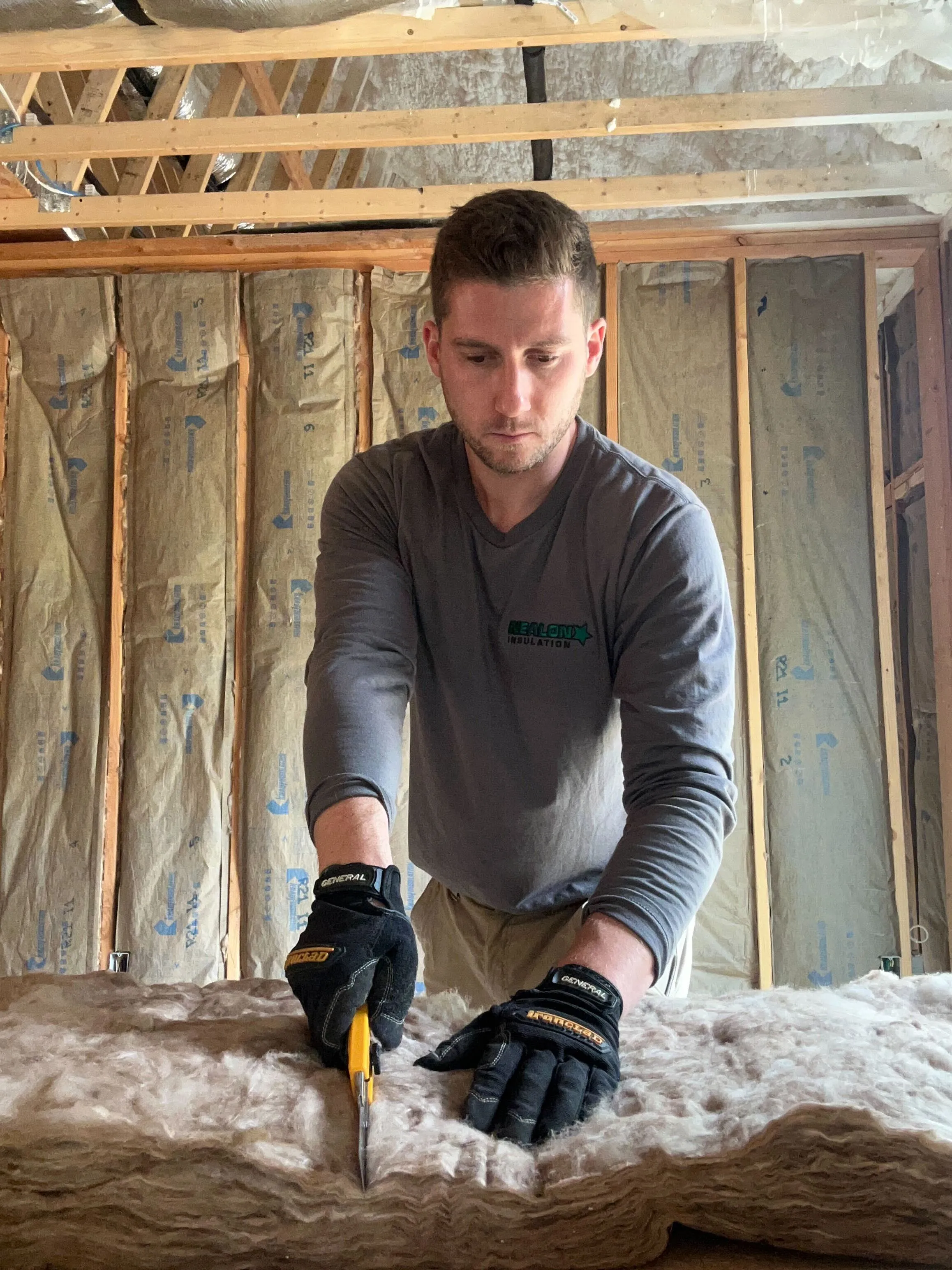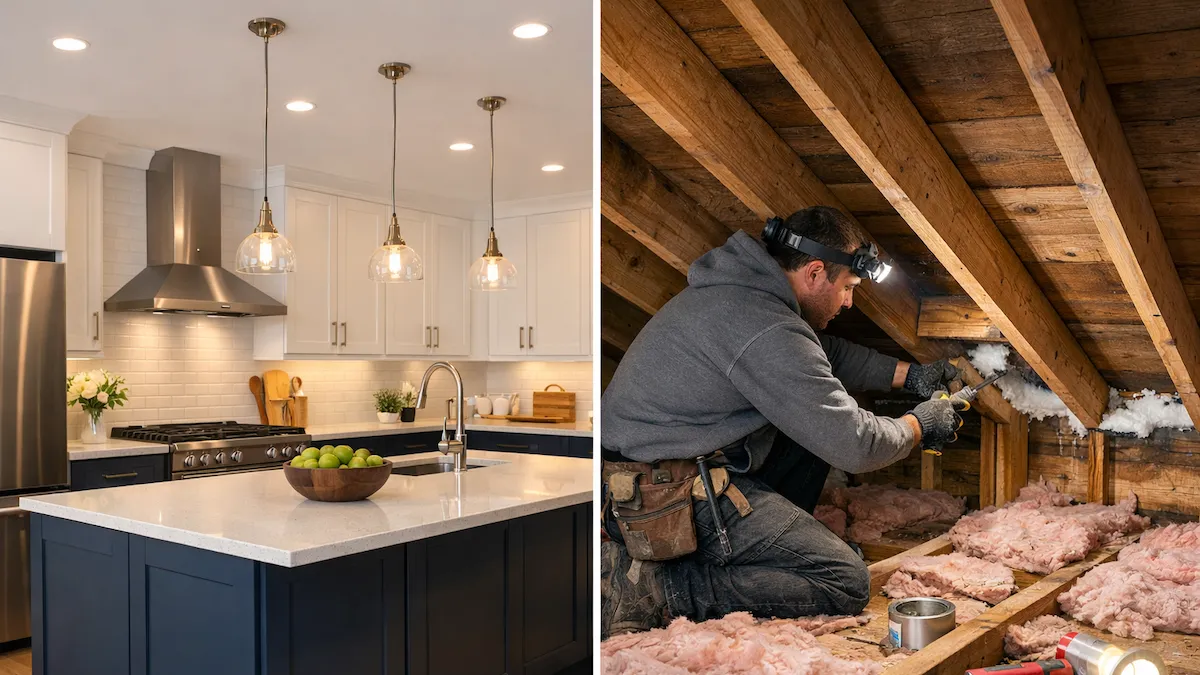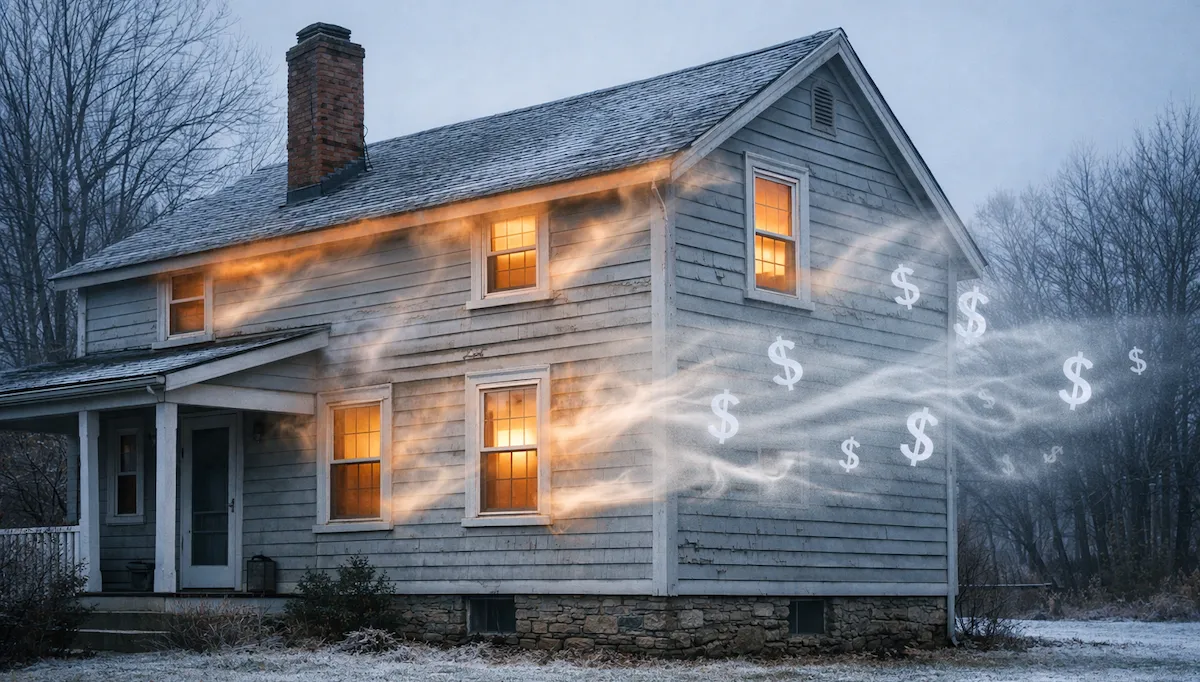How to Find an Insulation Contractor in Connecticut

Finding the right insulation contractor in Connecticut isn’t just about picking the first name that pops up on Google. It’s about making sure your home isn’t bleeding heat in the winter, roasting like a greenhouse in the summer, or getting wrecked by moisture because some guy with a shop-vac called himself an “insulation pro.”
A good insulation job can cut your energy bills by 15–20%, keep your house comfortable year-round, and protect your biggest investment—your home. But here’s the catch: not all contractors are created equal. In Connecticut, you want someone who’s licensed, insured, and who actually understands our mix of coastal humidity, freezing winters, and older homes.
This guide breaks down exactly how to find the best insulation contractor for your project. We’ll cover what to look for, what questions to ask, and how to avoid the red flags that could cost you thousands later.
Why Hiring a Professional Insulation Contractor in Connecticut Matters
Anyone can blow insulation into an attic. That’s the easy part. The hard part is understanding how insulation, air movement, moisture, and ventilation all work together — especially in a Connecticut home that sees Nor’easters in January and sticky shoreline humidity in July.
Done correctly, insulation is a system. Done poorly, it’s just expensive fluff.
A professional contractor isn’t just adding R-value. They’re thinking about airflow pathways, vapor drive, recessed lighting, bath fan terminations, soffit ventilation, and how all of it behaves across four very different seasons. That’s the difference between a house that feels steady and comfortable — and one that still has cold bedrooms, ice dams, or musty attic air.
Here’s what that actually means for you:
Comfort & Lower Energy Bills:
Proper insulation creates consistent indoor temperatures. No more freezing back bedrooms or overheated second floors. Most homeowners see meaningful reductions in heating and cooling costs when the work is done right.
Moisture Control:
Connecticut’s climate swings hard. Without proper air sealing and ventilation, warm air condenses in attics and wall cavities, leading to mold, rot, and insulation that underperforms. A professional understands how to stop moisture before it becomes damage.
Health & Safety:
Older insulation can hide rodent debris, mold growth, and disconnected exhaust ducts. A qualified contractor knows when removal is necessary and how to contain dust and contaminants safely.
Code Compliance:
Connecticut has strict R-value requirements and fire safety rules — especially around spray foam. Licensed contractors understand what inspectors look for and how to meet state standards the first time.
Material Selection:
Spray foam, cellulose, and fiberglass each have their place. The right solution depends on your home’s structure, age, and moisture exposure — not what happens to be cheapest that week.
DIY mistakes — like blocking soffit vents, compressing batts, or skipping air sealing entirely — can turn a “budget upgrade” into a long-term headache. A real contractor knows how to avoid those pitfalls and design the job as a system, not just a line item.
If you want insulation that actually performs — not just looks good in a photo — it pays to hire someone who understands how Connecticut homes really behave.
Connecticut insulation building code: Practical guide for homeowners
What to Look for in an Insulation Contractor
Choosing an insulation contractor isn’t like picking a pizza joint—you can’t just grab the closest one and hope for the best. Look for these must-haves:
- License & Insurance: Connecticut requires a Home Improvement Contractor (HIC) registration. No number = no hire. Always verify on CT eLicense. Ask for a certificate of insurance with your name listed.
- Material Knowledge: They should explain spray foam vs. cellulose vs. fiberglass without fumbling. One-product contractors often push what they sell, not what you need.
- Local Experience: A shoreline cape in Old Saybrook isn’t the same as a Glastonbury colonial. Local contractors know the quirks.
- Reviews & References: Look for specific mentions of CT towns, cleanliness, and rebate help in reviews.
- Transparent Pricing: A proper estimate breaks down R-values, materials, prep, and venting. “Insulation – $3,000” is a gamble, not a plan.
Pro Tip: If air sealing isn’t included in the estimate, you’re not talking to a serious contractor.

Types of Insulation Services in Connecticut
Not every house needs the same fix. A solid contractor should offer and explain these services:
The right contractor doesn’t push one material—they match the fix to your house.
Air Sealing vs Insulation: Should You Air Seal or Insulate First?
How to Research and Compare Contractors in Connecticut
Here’s how to do your homework CT-style:
- Verify HIC Registration: Every contractor must have a CT license number. Ours is HIC.0699578. No number? Walk away.
- Check Insurance: Get a current certificate of insurance with your name listed. Confirm liability.
- Look for Local Knowledge: They should bring up EnergizeCT rebates, shoreline humidity, balloon framing in older homes, and R-value code minimums.
- Read Reviews Carefully: Search “insulation contractor reviews Connecticut” and see if customers mention specific towns, rebate help, and cleanup.
- Compare Apples to Apples: A proper estimate shows R-values, air sealing, venting, and material type. A vague price is a red flag.
- Spot CT Red Flags: No license, no rebate knowledge, no air sealing, or clueless about ventilation = trouble waiting to happen.
Questions to Ask Before Hiring
Use this checklist during your consultation:
- What’s your Connecticut HIC number? (Verify it.)
- Do you carry liability insurance? (See the certificate.)
- Which insulation type do you recommend for my house—and why?
- How will you handle air sealing? (Look for hatches, lights, rim joists.)
- What’s your plan for attic ventilation? (Soffits, ridge vents, bath fans.)
- Do you handle EnergizeCT rebate paperwork?
- Can I see references from projects in my town?
- Will you give me a detailed written estimate?
If they dodge or gloss over any of these, move on.
10 Smart Questions to Ask Before Hiring an Insulation Contractor in Connecticut
Why Choose a Local Connecticut Contractor
Insulation isn’t a generic trade. It’s regional. The way a house behaves in coastal Connecticut is different from a house in Arizona — and even different from one in upstate New York. Our mix of humid summers, freezing winters, salt air along the shoreline, and a housing stock full of 1940s capes and balloon-framed colonials creates very specific insulation challenges.
A local contractor doesn’t just understand insulation — they understand how Connecticut homes actually perform over time.
Here’s why that matters:
Connecticut Codes:
Attics typically need R-49 to R-60, and spray foam installations require proper ignition or thermal barriers. Local contractors know what inspectors expect and how to meet state code without surprises.
EnergizeCT Rebates:
State rebates can cover up to 50% of qualifying insulation improvements. Contractors who regularly work in Connecticut understand the paperwork, eligibility rules, and how to structure jobs to maximize incentives.
Climate-Specific Knowledge:
Shoreline humidity, ice dam patterns, drafty knee walls, disconnected bath fans — these aren’t rare edge cases here. They’re weekly occurrences. Local crews diagnose these issues quickly because they see them every day.
Accountability:
If you ever need a follow-up visit or service question answered, a Connecticut-based company can respond. Out-of-state operators often disappear once the check clears.
Local Trade Relationships:
Established contractors coordinate with Connecticut HVAC technicians, roofers, and suppliers. That speeds up scheduling, improves job quality, and reduces delays.
Hiring local isn’t about sentiment. It’s about competence. A contractor who works in this state year-round understands how our homes are built, how they fail, and how to insulate them properly for the long haul.
Conclusion: Don’t Gamble on Comfort (or Your Wallet)
Finding the right insulation contractor in Connecticut doesn’t have to feel like rolling dice. The formula is simple: licensed + insured, knowledgeable about CT codes and rebates, transparent in pricing, and experienced with the quirks of our shoreline capes, valley colonials, and everything in between.
Get it right, and you’ll cut your energy bills, boost comfort, and keep your home healthy for decades. Get it wrong, and you’ll be paying twice—once for the “cheap” job, and again to fix it.
That’s why homeowners from Clinton to Guilford to Old Saybrook have trusted Nealon Insulation for nearly 50 years. We’re local, HIC registered, and we don’t just blow insulation—we solve the whole problem: air sealing, ventilation, and rebates included.
Common FAQ's about Insulation Contractors
How do I know if an insulation contractor is cutting corners?
Identify corner-cutting by demanding a detailed insulation scope that lists R-values, material type, air sealing methods, ventilation protection, and Connecticut code compliance. Reject any estimate that omits written air sealing and attic penetration sealing details.
Should my insulation contractor handle ventilation too?
Yes, your insulation contractor should also handle ventilation. In Connecticut, proper attic ventilation prevents mold, moisture buildup, and ice dams. A qualified contractor will install baffles, clear soffits, and reroute bathroom fans to ensure airflow is maintained alongside insulation.
Do insulation contractors help with Connecticut energy rebates?
Yes, top insulation contractors in Connecticut help with energy rebates. EnergizeCT offers rebates covering up to 50% of project costs, and qualified contractors assist with paperwork and program navigation. If a contractor can’t explain the rebate process, they likely lack current program knowledge.
What happens if my contractor isn’t registered in Connecticut?
If your contractor isn’t registered in Connecticut, you lose key consumer protections and risk poor or unsafe work. Unregistered contractors violate state law and leave you without legal recourse. Always verify their Home Improvement Contractor (HIC) number on the Connecticut eLicense system.
Is it normal for insulation contractors to check my whole house, not just the attic?
Yes, it’s normal—and smart—for insulation contractors to check the entire house, not just the attic. Quality contractors inspect basements, rim joists, walls, and ventilation because energy and moisture problems often span multiple areas in Connecticut homes.
Related Articles
Let's Work Together
Ready to transform your home into an energy-efficient haven? Schedule your free energy assessment today and experience the Nealon difference for yourself.



